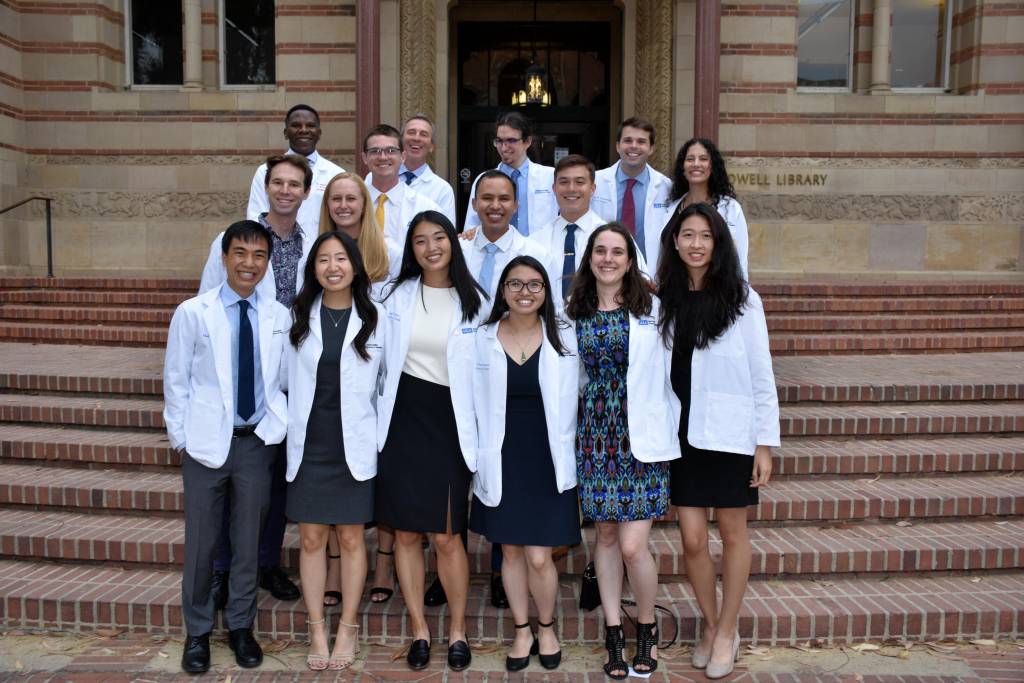University of Michigan MSTP graduate programs offer a unique and rigorous path for aspiring physician-scientists. This program combines the best of both worlds: a top-tier medical education with the opportunity to conduct cutting-edge research. Students gain hands-on experience in labs, work closely with renowned faculty, and develop the skills necessary to make significant contributions to the fields of medicine and science.
The program’s curriculum is designed to foster a deep understanding of both medical and scientific principles. Students engage in a variety of rotations, research experiences, and core courses that prepare them for a successful career in either clinical practice or research. The program’s strong emphasis on mentorship and support ensures that students receive the guidance and resources they need to excel in their studies and research.
Research Opportunities: University Of Michigan Mstp Graduate Programs

The MSTP at the University of Michigan offers a wide range of research opportunities across various disciplines, allowing students to delve into cutting-edge scientific advancements and contribute to groundbreaking discoveries.
The MSTP fosters a collaborative and intellectually stimulating environment where students can engage with renowned faculty and collaborate with fellow researchers.
Research Areas and Specializations
The MSTP offers research opportunities in a wide range of disciplines, including:
- Basic Science:
- Cancer Biology
- Cellular and Molecular Biology
- Genetics and Genomics
- Immunology
- Neuroscience
- Pharmacology
- Stem Cell Biology
- Clinical Research:
- Cardiovascular Medicine
- Endocrinology
- Gastroenterology
- Infectious Diseases
- Neurology
- Oncology
- Pulmonary Medicine
- Translational Research:
- Bioengineering
- Bioinformatics
- Clinical Trials
- Drug Discovery
- Medical Devices
Examples of Current Research Projects
MSTP students are actively involved in a variety of research projects, including:
- Developing novel therapies for cancer using immunotherapy.
- Investigating the genetic basis of rare diseases.
- Designing new clinical trials for cardiovascular disease.
- Developing bioengineered tissues for transplantation.
- Utilizing artificial intelligence to improve patient care.
Opportunities for Collaboration with Faculty and Research Labs
The MSTP provides numerous opportunities for students to collaborate with faculty and research labs:
- Faculty Mentorship: Students are assigned a faculty mentor who provides guidance and support throughout their research endeavors.
- Research Rotations: Students have the opportunity to rotate through different labs and explore various research areas.
- Research Seminars and Conferences: The MSTP hosts regular research seminars and conferences, providing students with opportunities to present their work and learn from leading researchers.
- Research Funding: Students are eligible for a variety of research funding opportunities, including grants and fellowships.
Career Paths and Outcomes
The MSTP program at the University of Michigan is renowned for preparing its graduates for successful careers in various fields. Graduates are highly sought after by top academic institutions, hospitals, research organizations, and pharmaceutical companies. The program’s emphasis on rigorous training in both research and clinical medicine equips students with a unique skillset that is highly valuable in today’s competitive job market.
Diverse Career Paths
MSTP graduates pursue a wide range of careers. The program’s curriculum and training prepare students for careers in academic medicine, clinical research, translational research, public health, and industry.
- Academic Medicine: Many MSTP graduates pursue careers as faculty members at leading universities, conducting research and teaching the next generation of physicians and scientists.
- Clinical Research: Others focus on clinical research, designing and conducting clinical trials to evaluate the efficacy and safety of new treatments and therapies.
- Translational Research: MSTP graduates are well-suited for translational research, bridging the gap between basic science discoveries and clinical applications.
- Public Health: Some graduates pursue careers in public health, working to improve the health of populations through research, policy, and advocacy.
- Industry: MSTP graduates are also sought after by pharmaceutical and biotechnology companies, where they contribute to the development and commercialization of new drugs and therapies.
Successful Alumni
The MSTP program has a long history of producing successful alumni who have made significant contributions to their chosen fields. For example,
- Dr. [Alumni Name], a graduate of the MSTP program, is now a renowned physician-scientist who has made groundbreaking discoveries in [Research Area]. Their research has led to the development of [Innovation] and has had a profound impact on [Impact Area].
- Dr. [Alumni Name], another MSTP graduate, is currently a leading researcher in [Research Area]. Their work has been instrumental in [Impact Area] and has earned them numerous awards and recognitions.
- Dr. [Alumni Name], a graduate of the MSTP program, has made significant contributions to [Impact Area] through their work in [Field]. Their research has helped to improve the lives of millions of people around the world.
Program’s Track Record, University of michigan mstp graduate programs
The MSTP program at the University of Michigan has a strong track record of preparing students for successful careers. The program’s curriculum is designed to provide students with a comprehensive foundation in research, clinical medicine, and leadership skills. The program also offers a wide range of resources and support services to help students succeed in their careers.
The MSTP program is committed to fostering the next generation of physician-scientists who will make significant contributions to improving human health.
Comparisons with Other Programs

Choosing the right MD/PhD program is a crucial decision for aspiring physician-scientists. The University of Michigan MSTP stands out among other top programs nationwide, offering a unique combination of strengths and resources that make it a highly competitive choice.
Program Strengths and Unique Features
The University of Michigan MSTP distinguishes itself from other programs through its commitment to fostering a collaborative and supportive environment, its emphasis on interdisciplinary research, and its dedication to training physician-scientists who are equipped to address the complex challenges of modern medicine.
- Collaborative and Supportive Environment: The MSTP fosters a close-knit community among students, faculty, and staff, creating a supportive and collaborative learning environment. The program emphasizes mentorship and provides ample opportunities for students to connect with peers and faculty across disciplines.
- Interdisciplinary Research: The program encourages students to pursue research that transcends traditional disciplinary boundaries. The University of Michigan’s renowned research enterprise, with its strong focus on translational research, provides ample opportunities for students to engage in cutting-edge research across a wide range of disciplines.
- Comprehensive Training: The MSTP curriculum is designed to provide students with a comprehensive foundation in both clinical medicine and biomedical research. Students receive rigorous training in the latest medical technologies and research methodologies, preparing them for successful careers as physician-scientists.
- Dedicated Faculty: The MSTP boasts a distinguished faculty of physician-scientists who are leaders in their respective fields. These faculty members are dedicated to mentoring students, providing guidance, and fostering their development as future physician-scientists.
Factors Making the University of Michigan MSTP Competitive
Several factors contribute to the University of Michigan MSTP’s competitive edge in attracting aspiring physician-scientists:
- Research Excellence: The University of Michigan is consistently ranked among the top research universities in the nation. The MSTP benefits from this research excellence, providing students with access to cutting-edge research facilities, technologies, and collaborations with leading researchers.
- Clinical Expertise: The University of Michigan Medical Center is a renowned academic medical center, providing students with access to a wide range of clinical experiences and exposure to diverse patient populations.
- Location: The program’s location in Ann Arbor, Michigan, offers students a vibrant and dynamic environment with access to a range of cultural and recreational activities. Ann Arbor is also home to a thriving entrepreneurial ecosystem, providing opportunities for students to engage in technology development and commercialization.
- Financial Support: The MSTP offers competitive financial aid packages, including stipends, tuition waivers, and health insurance, to ensure that students can focus on their studies and research without undue financial burden.
Comparison with Other Programs
While the University of Michigan MSTP shares many similarities with other top MD/PhD programs, its unique strengths set it apart.
- Focus on Translational Research: The University of Michigan MSTP places a strong emphasis on translational research, bridging the gap between basic science and clinical practice. This focus allows students to gain experience in developing and translating research findings into clinical applications.
- Interdisciplinary Collaboration: The program encourages students to collaborate with researchers from diverse disciplines, fostering a dynamic and innovative research environment.
- Mentorship and Support: The MSTP is renowned for its strong mentorship program, providing students with dedicated faculty advisors who guide them through their training and research endeavors.
Final Summary

The University of Michigan MSTP program provides a transformative experience for those seeking to become physician-scientists. Graduates emerge with a comprehensive understanding of both medicine and research, ready to make a real impact on the world. The program’s commitment to excellence, combined with its supportive environment, ensures that students are well-equipped to pursue their passions and achieve their career goals.
The University of Michigan’s MSTP graduate programs are known for their rigorous curriculum and focus on research. However, the pandemic forced a shift towards online learning, which has had a lasting impact on the way these programs are delivered.
The article, ” Adapting to Change: Exploring the Lasting Impact of Online Learning on University Education After the Pandemic “, explores this transition in detail and its implications for the future of higher education. While the MSTP programs at Michigan have always been known for their hands-on approach, the incorporation of online learning has provided new opportunities for flexibility and accessibility.
